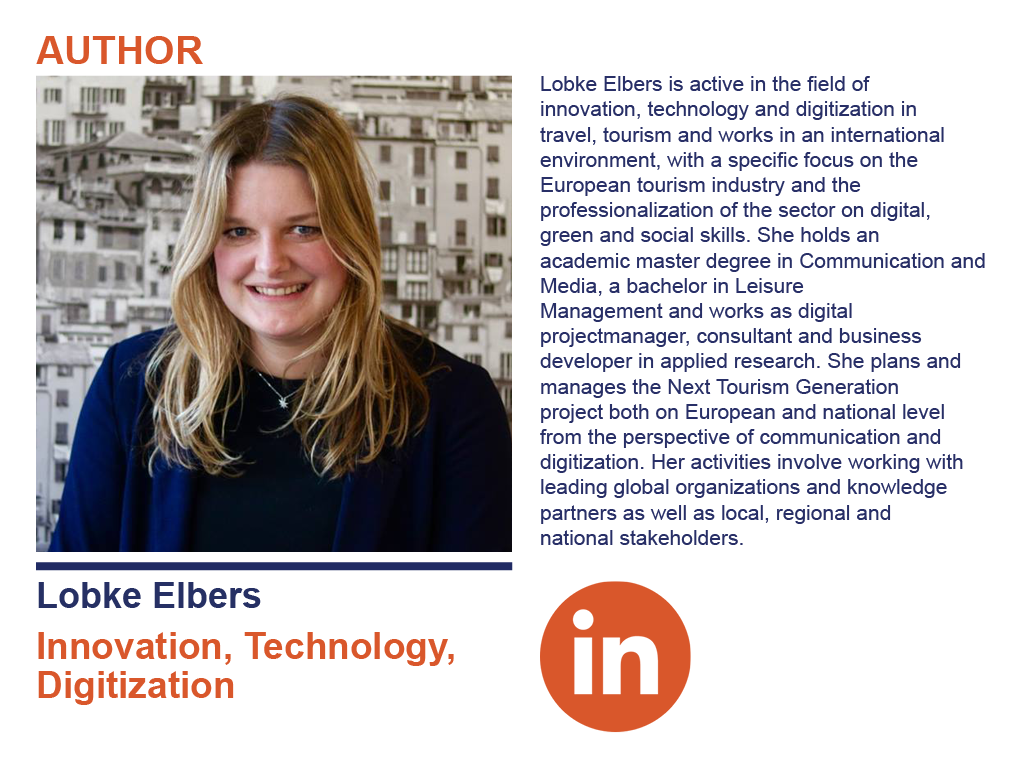Innovation starts in crises: Inspiring tourism concepts for sustainable credentials
Sometimes, it is very inspiring to look for best practices and case studies from all over the world. How can we support tourism stakeholders that have been impacted by the pandemic and more importantly, what is needed for tourism to become more resilient in the future, taking account of the changes in our climate? The European Commission has shown once again how important skills are for the future of tourism. Now, we must consider what concepts and ideas we can adapt to develop skills further.
First climate resilient nation: Leading by example with creativity and knowledge
We looked for examples worldwide, and one of the most outstanding is to be found in Dominica. Dominica plans to become the world’s first climate resilient nation, and banning single-use containers is just one step they’re taking to get there, reported National Geographic.
In addition to protecting its valuable tourism industry, the government hopes sustainable policies will make the island more resilient to hurricanes like the one that devastated the island’s infrastructure in 2017. “We have a unique opportunity to be an example to the world, an example of how an entire nation rebounds from disaster and how an entire nation can be climate resilient for the future’’ says The Minister of Tourism, Denise Charles.
Now, in 2021, another step has been taken. Dominica is launching the concept of ‘Work in Nature’.
Work in Nature, what does it mean?
The article was published on Forbes, stating that ‘’the island of Dominica has a reputation for being the ‘nature island of the Caribbean’ and very soon, it will be open to digital nomads who want to live and work in a place where migrating sperm whales are a major visual feature of day-to-day life’ says Charles.
A catchy opener of course, but what is really interesting here is to analyze how tourism businesses, with help of the government, have launched a way to lure working tourists into its mountainous terrain, to share the natural beauty of the environment. It’s also a win-win situation, as it will help local stakeholders and feed into the country’s sustainability campaign.
Work in Nature as a concept, has a few key features. Some are easier to adopt than others, but in general, the concept provides some ideas on how to set up a tourism product that focuses on working remotely for a longer period and doing good for the local economies.
The Work In Nature (WIN) Extended Stay Visa allows visitors to relocate to Dominica and work remotely for up to 18 months. The pristine natural environment will provide visitors with the wellness, the joy, and the promising adventures.
The Minister of Tourism, Denise Charles, said, “this is one of the initiatives which will help boost our tourism industry in our phased tourism recovery approach, while providing a safe environment for persons to work remotely in a tropical environment. Stakeholders and island partners have all collaborated to provide an attractive program which also helps to create the opportunity for economic recovery.”
Digital nomad lifestyle can promote a more sustainable way of traveling
Of course, working in these remote areas are challenging, but it starts small. How can tourism organizations make working abroad more interesting for digital nomads? It starts with the right facilities such as connection, a good chair and desk to work and a nice coffee machine in the room would be a great start.
Hosting visitors on eco-label accommodations and cottages, or for example provide good opportunities for education are a second. The WIN concept is encouraging families and their children to attend school on the island. The infrastructure, public utilities, hospitals, schools, transport services, and internet connectivity must be solid and reliable as well to be attractive for visitors.
The pandemic has certainly put a spotlight on the digital nomad lifestyle and made remote working more mainstream and commonplace. With many people used to being stuffed into cubicles and now realizing their jobs can be done anywhere with a Wi-Fi connection, new possibilities are opening up.
Now, more countries than ever before are offering digital nomad visas for remote workers. The number of Digital Nomads has been growing exponentially over the last few years. With this ever growing community, it is important to take sustainability into account. By stimulating sustainable behaviour and credentials from the beginning on; it will inspire future digital nomads to travel more sustainable as well.
Innovation starts in crises: Voluntourism
Where does innovation come from? From crises.
Of course, when we talk about tourism and reopening countries, we first think of attracting guests and visitors. But remote working, as a concept, is a fun idea of combining work and private life in a better way, under nice weather conditions, to be part of beautiful nature and to contribute to a sustainable development of destinations.
Another good example is the Faroe Islands campaign. In April 2019, the Faroe Islands saw unprecedented success from its first ever ‘Closed for maintenance, open for voluntourism’ campaign, which forms part of a wider move by Visit Faroe Islands to pave the way for a sustainable future for the islands and its burgeoning tourism industry. The Maintenance Crew, consisting of traveling volunteers, worked alongside locals to preserve ten locations across the islands, maintaining and creating hiking pathways and viewing areas, and setting up signposting. In September 2021, another one is planned. Locals will have help from people visiting from all over the world, willing to learn and contribute to these beautiful islands.
NTG to lead by example on sustainable skills development and underpinning collaboration
It is important to recognize that the nature of the tourism industry is complex ; it has an impact on the climate but also it has the potential to influence positive change.
The commitment of nations that are engaged in the NTG project and other European member states is important to stand up and lead by example on how to collaborate on skills development for sustainability in tourism. Partnership working is needed, as the tourism industry, government and education/training providers all have a major role to in developing sustainability credentials.
The NTG Blueprint Research undertaken by NTG partners into the barriers to addressing sustainable skills needs in the tourism and hospitality sector identified however that there is currently a lack of strategic coordination at EU and national level which is acting as a – major barrier. Approaches are often uncoordinated, and initiated without engagement with relevant stakeholders, although addressing skills needs requires the gap between key stakeholders, such as educational and training institutions, government and industry, to be bridged through collaboration. However, successful collaboration is recognized as a hugely complex process and can be difficult to achieve.
Thus, the central element of the NTG project is collaboration and the NTG Collaborative Governance framework is an example of a tool which could be used to strategically address future skills needs, using input from government, industry and education. Additionally, a key element of the Blueprint is a Tourism Skills Collaborative Structure (“National Tourism Skills Groups”) at a national or regional level to address current and future skills needs. Structures could be set up using the Collaborative Governance Framework as guidance.
This project aims to contribute to develop sustainable credentials so that more European countries can lead by example on climate goals.





No Comments